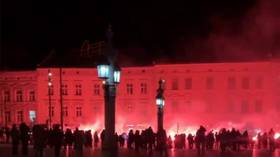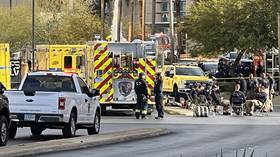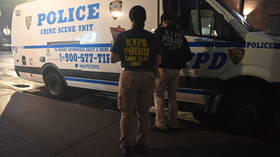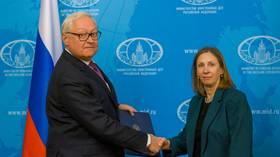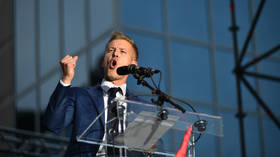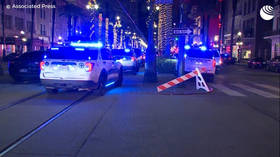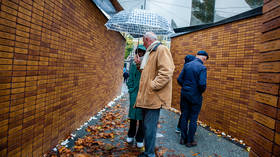Russia readies for nationwide Single Election Day
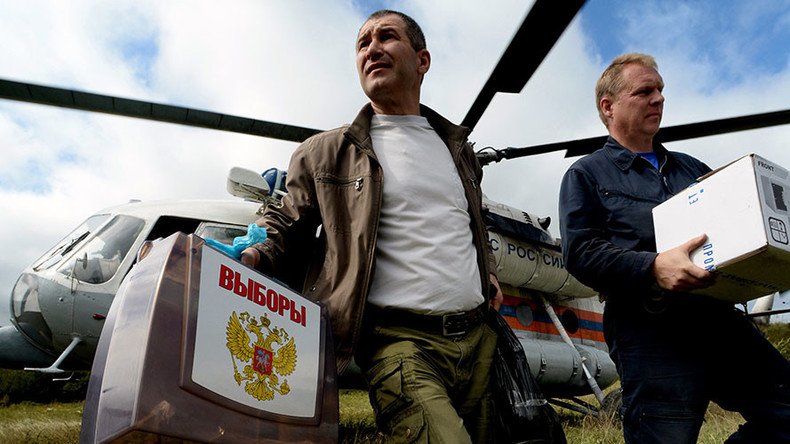
Russians head to the polls on September 18 – a nationwide election day which will see voting take place for the federal parliament and dozens of municipal and regional bodies.
The country will be electing the seventh body of the State Duma, and for the first time federal polls will be moved to the single-day election format introduced in 2012. Previously, parliamentary elections were always held in December. Moving the voting date required parliament to pass a special law, which was then signed by the president and sanctioned by the Constitutional Court. The law allows the terms of outgoing MPs to be cut, but orders that until December they can continue to receive salaries and insurance and stay in state apartments.
On September 18 Russians will also be electing the heads of several regions – the Chechen Republic, Komi Republic, Transbaikal Region, Tver Region, Ulyanovsk Region, and Tula Region. In addition, the heads of the North Ossetia and Karachai Circassia regions will be chosen by local legislatures.
The Russian government has allocated about 11 billion rubles (about US$170 million at current rates) for the organization of the September 18 elections at all levels.
State Duma
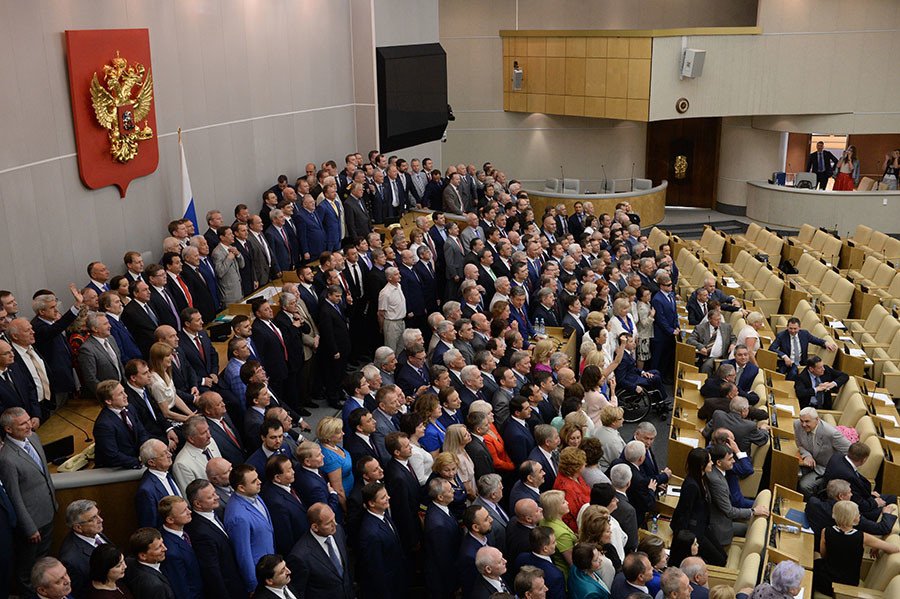
The lower house of the Russian parliament – the State Duma – is elected every five years. The Duma drafts and passes federal laws, sanctions the appointment of the prime minister by the president, and itself appoints several top state officials – such as the director of the Central Bank and the chairman of the Audit Chamber. In extraordinary situations, the lower house can initiate the dismissal of government and the impeachment of the president.
According to statistics published on the lower house website, the sixth State Duma has set records both for the number of legislative drafts submitted and for the number of bills passed – lawmakers approved 1,817 of the 6,012 bills drafted between late 2011 and 2016. The State Duma is made up of 450 seats. Half of these will be occupied by deputies elected from the candidate lists presented by the parties taking part in the polls. The pass threshold for parties will be 5 percent, down from 7 percent in the 2011 elections. The other half will be taken up by candidates elected according to a first-past-the-post system in each of the 225 independent constituencies or districts that together form the Russian Federation.
According to Russian law, political parties which get at least 3 percent of the votes, or secure at least 12 seats reserved for single-constituency candidates, are entitled to state funding to compensate money spent on election campaigns. The compensation is to be paid in annual installments until the next elections, and is proportional to the number of votes received in the elections by the party’s federal lists and independent candidates.
It will be the first time the mixed principle has been used since 2003, as in 2007 and 2011 Russians elected State Duma deputies from federal party lists only.
Parties in the race
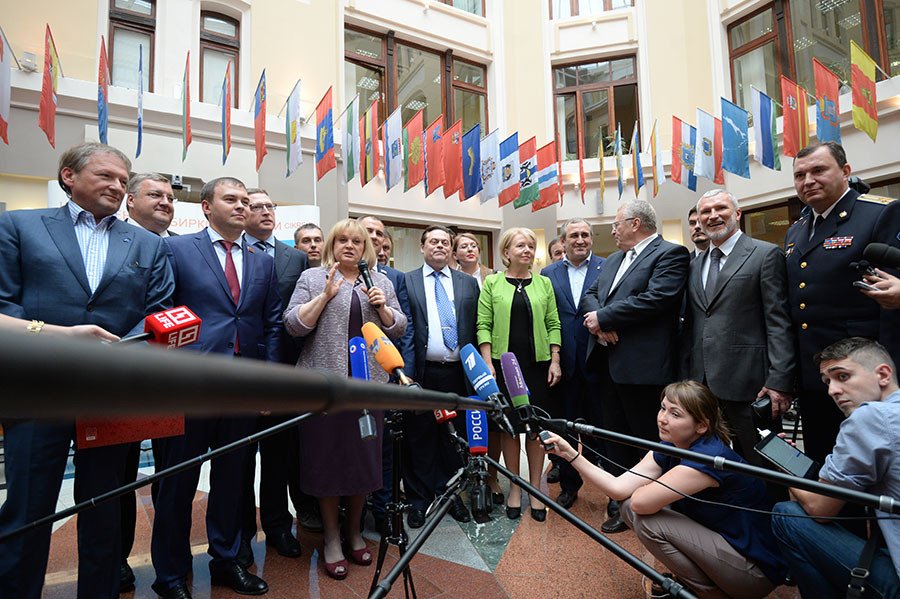
Russian parties and candidates can finance their election campaigns themselves or through donations made by Russian citizens or companies. The law forbids donations from anonymous donors, foreign citizens and governments, foreign or international companies and groups, as well as Russian groups that are classed as ‘foreign agents’ (meaning the group is funded from abroad while being engaged in Russian political processes).
To participate in the elections, parties and independent candidates must prove they have sufficient support by collecting signatures from those who want them to run. These are then presented to election commissions.
Parties that received more than 3 percent of the vote in the previous State Duma polls, as well as those who have at least one representative in any of the regional legislatures, are not required to collect signatures.
This rule applies not only to party members who have won in recognized elections, but also to those who have changed their party allegiance while holding a legislative seat, and those who have received a lawmakers’ mandate from their allies while serving as a member of another party.
In 2011, Russians elected representatives of four parties in the lower house: United Russia, which held 238 seats; the Communist Party of the Russian Federation, with 92 seats; Fair Russia, with 64 seats; and the Liberal Democratic Party, which claimed 56 seats. Yabloko received over 3 percent of votes, but failed to pass the 7-percent threshold required to enter parliament at that time.
Other parties approved to take part in the 2016 parliamentary polls by virtue of having representatives in regional legislatures are: Patriots of Russia, Civil Platform, Communists of Russia, Party of Pensioners, Motherland, and the Political Party of People’s Freedom (PARNAS).
Three other parties gained approval for their candidate lists because they collected the required number of supporters’ signatures – Civil Force, the Greens, and the Party of Growth.
United Russia
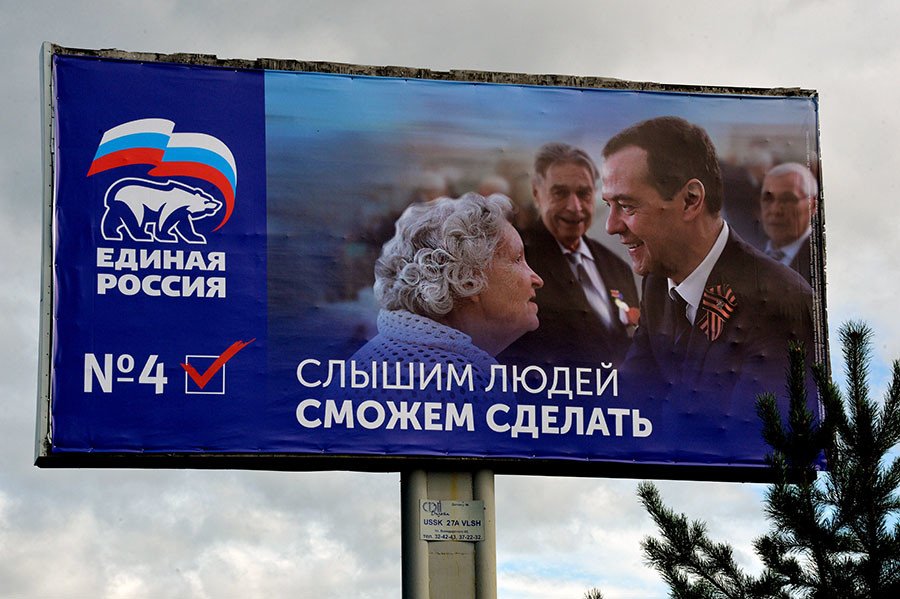
"Everyone’s success – Russia’s success! We hear everyone and we can do it!"
United Russia is one of the largest political organizations in the country. It has a conservative program which concentrates on maintaining Russia’s territorial integrity, political and economic stability, and consolidation of public opinion on important political issues.
Early on, the party used the support of Vladimir Putin and claimed its program was based on ‘Putin’s plan’ – a policy emphasizing Russia’s economic independence and strong foreign policy course. United Russia still backs Putin as its founder and, as a parliamentary majority party, regularly reports to the president on the progress of the decrees that guide the development of the country.
The official leader of United Russia is Prime Minister Dmitry Medvedev.
The party has never disclosed its official membership numbers – in 2013 senior officials explained the figure is constantly changing – but Russian reports estimate the number at more than 2 million. The party also has a youth branch and is closely affiliated with the United Popular Front movement – a large political group that brings together people who share United Russia’s views and political goals but who are not members of the party.
A number of United Popular Front members are running for the State Duma on the United Russia ticket, although the law allows Russian parties to allocate no more than half of the seats they win at polls to non-members. Analysts expect that many of the United Popular Front members who win in single-seat constituencies will subsequently ally with United Russia in parliament.
KPRF
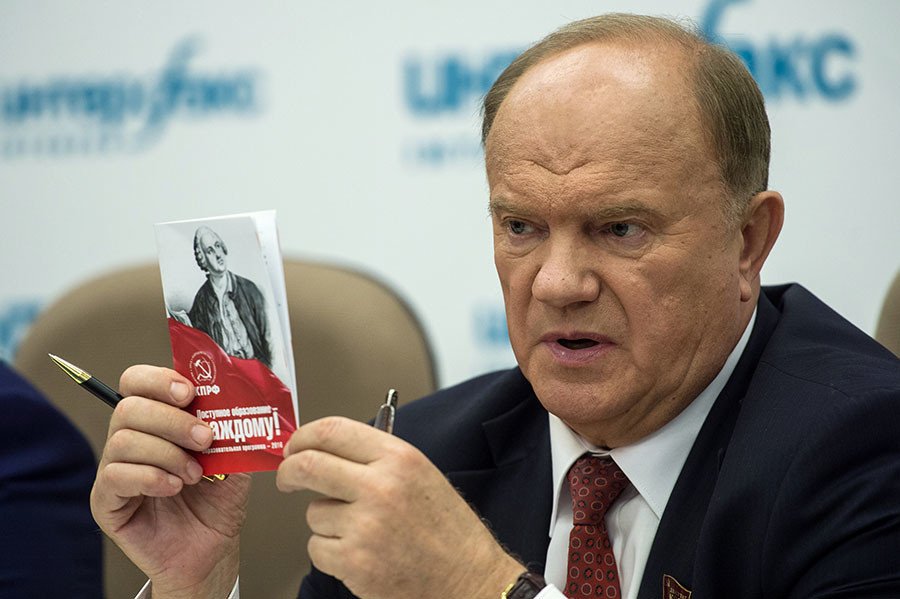
"Russia, labor, rule of the people, socialism!"
The Communist Party of the Russian Federation (KPRF) is the official heir to the once all-powerful Communist Party of the Soviet Union – indeed, its leader, Gennady Zyuganov, worked in the CPSU’s Central Committee in the late 1980s.
After perestroika, however, the Communists adopted a reformed program allowing for the co-existence of large-scale socialist enterprises and small private companies. Large corporations, especially transnational ones, are now seen as major threats and the Communists often use nationalist rhetoric in their propaganda. Curiously, the Communist Party has also abandoned atheism and turned to Christianity – which it sees as early Communist ideology, most likely in a bid to appeal to the sympathies of the older generation.
LDPR
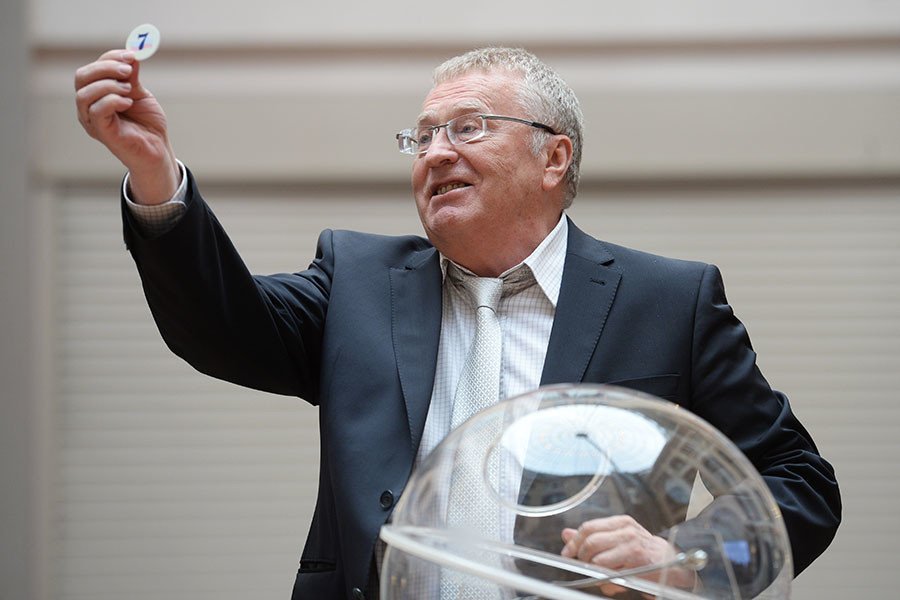
"A blow to the bureaucrats! Don’t stand in the way of those who work!"
The Liberal Democratic Party of Russia is one of the oldest political parties in modern Russian history. Headed by its founder, Vladimir Zhirinovsky, the LDPR has always used openly populist and nationalist rhetoric to achieve parliamentary representation, with the trick being justified by the polls.
Lately, the Liberal Democrats have gained additional popularity on the coat-tails of Russia’s foreign policy advances, but they are not expected to occupy a significant share of parliamentary seats.
Fair Russia
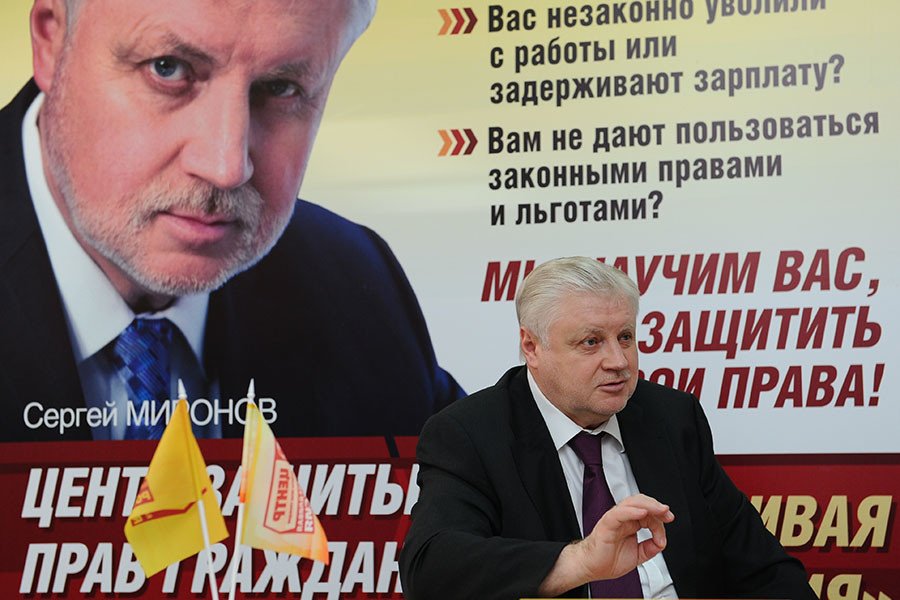
"We are for a fair Russia!"
Founded in 2006, Fair Russia (also translated into English as A Just Russia) is the youngest of all the parliamentary parties. It shares many of United Russia’s main policy points and previously openly declared support for President Vladimir Putin. Fair Russia mainly differs in the attention it gives to the problems of working people and its constant criticism of United Russia’s alleged bureaucracy.
The 2016 elections will be a tough test for Fair Russia, initially created as it was by a merger of several smaller parties including Life, Motherland and the Pensioners of Russia. After the political reforms of 2012, the Pensioners of Russia and Motherland re-registered as independents and are now taking part in the State Duma polls in their own right – most likely meaning they will draw a share of the vote away from Fair Russia.
Yabloko
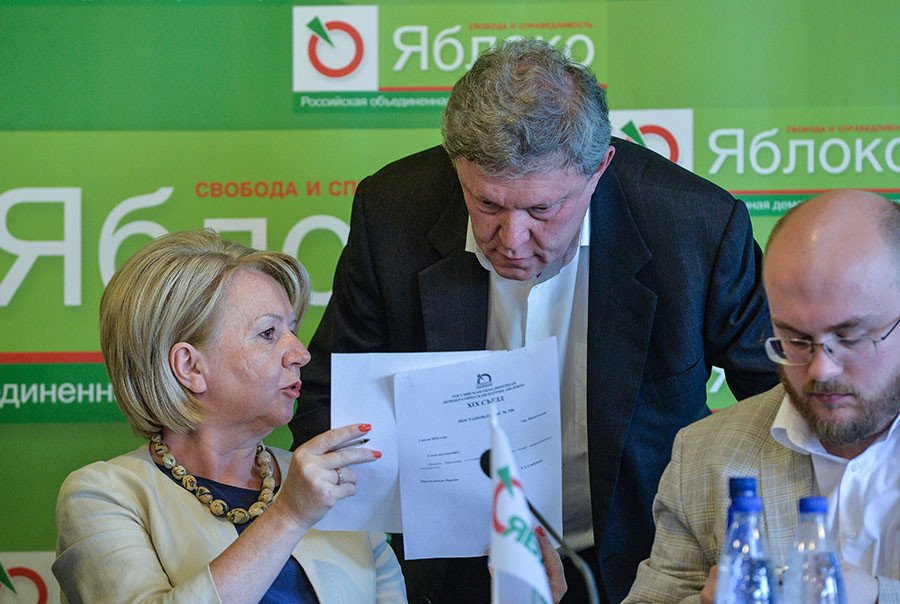
"Respect for everyone"
Yabloko is one of Russia’s oldest political parties. Registered in 1993 as a political bloc, it was later re-registered as a full-pledged party in 2001. Its name translates from Russian as ‘Apple’, but is actually an acronym formed from last names of its founders. The party presents itself as a “democratic alternative” to the authorities and maintains a liberal and pacifist agenda, occasionally bordering on pure idealism – for example, the party has previously ousted two of its senior members for accepting posts in the Russian government.
Yabloko won parliamentary seats in 1993, 1995 and 1999, but failed to pass the election threshold in 2003, 2007 and 2011. During the 2016 campaign, liberal opposition party PARNAS proposed to form a single list of candidates with Yabloko, but the latter refused.
PARNAS
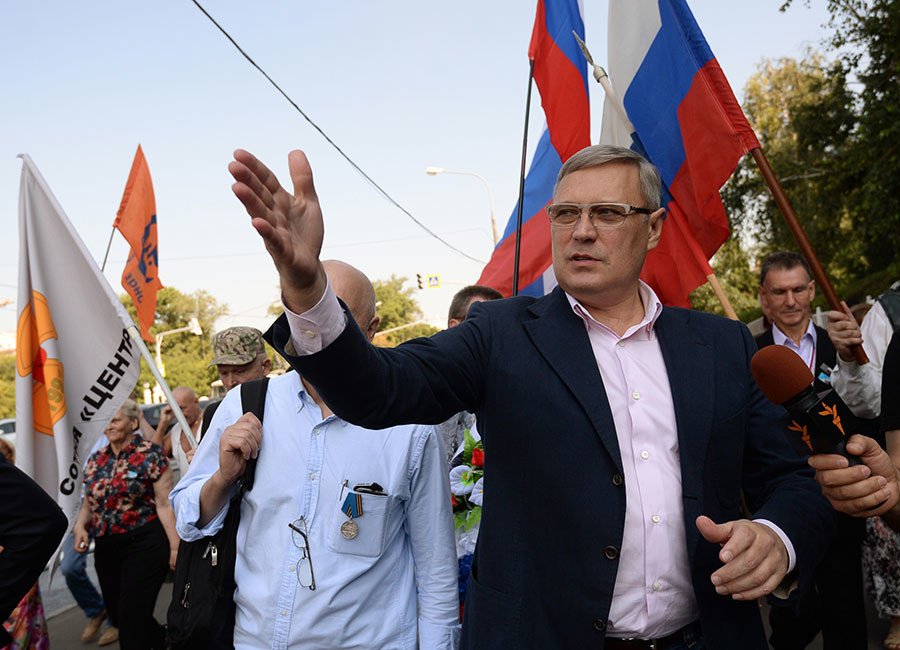
"Reload the system – support PARNAS!"
A notable right-wing opposition group participating in the polls is the Party of People’s Freedom (PARNAS). The party initially existed as a non-registered and loose coalition of pro-market activists, but they later began to seek official status. PARNAS held its first foundation congress in 2010, although it was denied registration for technical reasons and eventually merged with the Republican Party of Russia (RPR), led by veteran politician and parliamentarian Vladimir Ryzhkov. This allowed PARNAS to take part in the political process but very soon Ryzhkov and his supporters left the alliance, accusing the newcomers of hijacking the project.
PARNAS is currently headed by Mikhail Kasyanov, who was prime minister during Vladimir Putin’s first presidential term and in his promotion videos often compares the current period of Russian history to that time. Ryzhkov will be participating in the elections as a member of Yabloko’s federal list.
PARNAS has pursued a strategy of criticizing particular officials in senior posts across the Russian Federation. An example came in early 2016, when it entered an open standoff with the leader of the Chechen Republic, Ramzan Kadyrov, who has repeatedly accused opposition activists (although never naming them in public) of serving the interests of foreign nations and betraying Russia’s own cause. PARNAS co-chairman Ilya Yashin released a report in which he accused Kadyrov of setting up his own army, introducing Sharia law in the republic and leading a lavish lifestyle. Kadyrov responded by calling the report “empty words” and its presentation “a one-man show.” The row ended in March after President Putin appointed Kadyrov, whose term as Chechen leader was set to expire in April, acting leader of the republic until the September 18 elections.
Communists of Russia
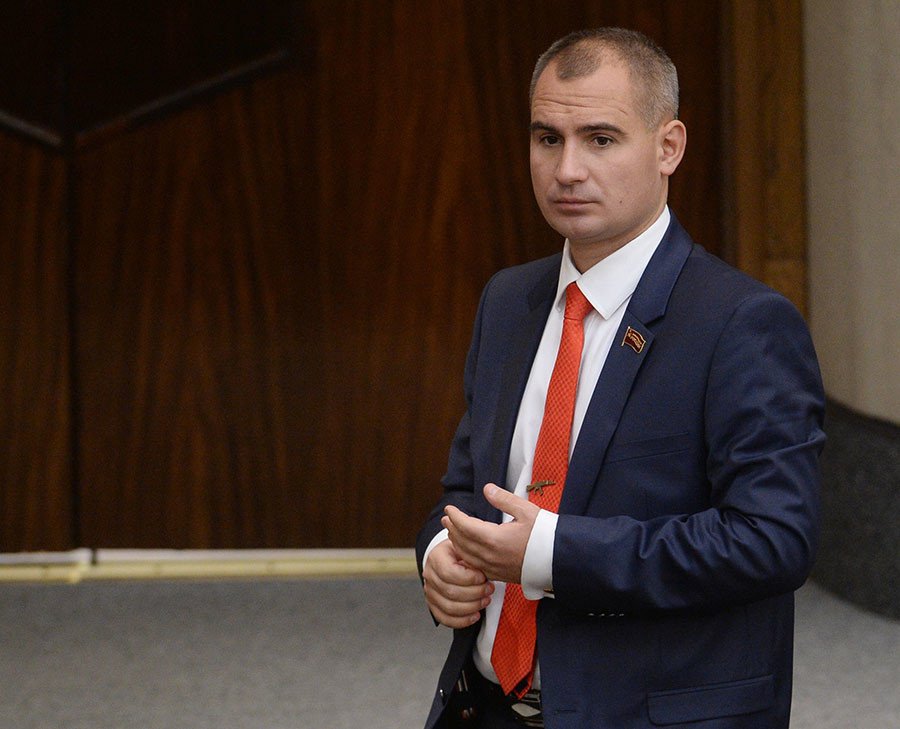
"Proletarians of the world, unite!"
The party representing the far left in the September polls is the Communists of Russia (not to be confused with the previously mentioned KPRF – the Communist Party of the Russian Federation). Communists of Russia was registered as a political party in 2012, but before that existed as an NGO under the name Communists of the Leningrad Region. Several top members of the party, including its leader, Maxim Suraikin, were formerly members of the KPRF but quit the party, claiming that they sought more aggressive action to protect the working class and seize power from the hands of capitalists.
While it has never launched any bills and cannot claim significant public support, Communists of Russia has succeeded in attracting the attention of mass media and the general public by making various bizarre suggestions and responding quickly to the latest fads.
Previous stunts include: threatening to launch mass protests if US actor Leonardo Di Caprio plays Vladimir Lenin in a movie; a proposal to ban ‘selfie sticks’ at street celebrations on Victory Day; an initiative to bar US athletes from participating in the 2014 Sochi Olympics; and a plea to the Central Bank to restrict the sale of foreign currency to citizens.
The KPRF accuses Communists of Russia of being “a fake party with a fake program” – a spoiler project aimed at drawing votes away from it and bringing general dissent to the leftist camp. The KPRF is, however, yet to present proof of these claims.
Communists of Russia’s election manifesto, entitled ‘Ten Stalinist Blows to Capitalism’, contains proposals to bring back the death penalty, nationalize major companies, freeze salaries and pensions as well as food prices, and take legal steps to oppose any attempts to impose religious ideas on society.



